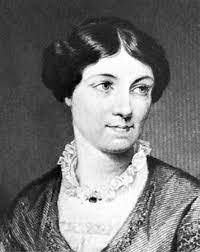Martineau, Harriet

Bio: (1802-1876) British sociologist. Harriet Martineau is regarded as the first female sociologist in the world. She is the author of a very large number of books and articles dealing with a wide range of topics: political economy, law, socialization, disease, religion, education, slavery, colonialism, industry, and the position of women. She created a macro-sociological paradigm through which she studied the consequences of economic and social phenomena in many countries and in different spheres. Her theory was influenced by the philosophical ideas of Immanuel Kant and Georg Hegel, the teachings of the French Socialists and utilitarianism, as well as the political economy of Adam Smith and David Ricardo.
Martineau traveled to the United States in 1834 and spent two years studying American society. The results of this research are presented in the three-volume book Society in America (1837). She studied how political and cultural values and principles are expressed in documents, and social institutions, but also in real social practices. She believed that the American practice lags behind the adopted values because the values of individual political rights and the belief that the government must work in the interest of those over whom that power is manifested have not been fully met. Slaves and women are excluded and prevented from realizing these values. She believed that the issue of slaves and the issue of the position of women must be resolved for this, then young country, to survive. Based on research conducted in the USA, Martineau wrote the book How to Observe Morals and Manners (1838b), which is one of the first detailed depictions of empirical sociological methods: ways of collecting data, principles of interviewing, ways of recording observations and data. In addition, this book provides instructions on how to conduct macro-sociological research of a society and which phenomena should special attention be paid to.
After Martineau conducted field research in the Middle East, she published the book Eastern Life (1848b), in which he claims that Judaism, Christianity, and Islam are connected and that their roots are in the ancient Egyptian religion. She came to that conclusion by comparing these three modern religions with the legends, myths, and practices described on Egyptian monuments. She believed that religion is one of the basic social institutions, but that modern institutionalized religion is a force that serves to justify and maintain social domination and oppression because it prevents change and limits individuality and freedom. She believed that religion, with the help of science, would become more rational and more ethical.
Martineau was one of the most important figures in early sociology, and similar to Comte and Claude Henri de Saint-Simon, she also advocated scientific positivism in the study of society, and, like those two, believed that scientific knowledge of society should be the main basis for shaping laws, education, and entire social order.
Fields of research
Christianity Colonialism Culture Customs, Social Domination Freedom Gender History Industry Islam Knowledge Law Morality Myth Orient Poverty Religion Revolutions Slavery Socialization TraditionTheoretical approaches
PositivismMain works
Society in America, 3 vols. (1837);
Retrospect of Western Travel (1838);
How to Observe Morals and Manners (1838);
Life in the Sickroom (1844);
Household Education (1848);
Eastern Life: Present and Past; 3 vol. (1848);
The History of the Thirty Years' Peace, A.D. 1816–1846 (1849);
The Positive Philosophy of Auguste Comte; 2 vol. (1853).

